This article can be considered as an evaluation of the 44 years from January 24, 1980, to January 24, 2024, from two poles. One pole is Türkiye, situated at the western end of Asia, and the other is the People’s Republic of China, guarding the eastern end of Asia.
Our fate, on the ominous January 24th of 1980, bestowed upon us a staunch Westernizer named Turgut Özal. Of course, here, we use the word “fate” as a metaphor. Even the most dedicated followers know by now that Turgut Özal was placed as a burden on Türkiye by whom and why. Thanks to him, we embarked on a process that led to the squandering and disappearance of all the resources that the Republic had gained for us and further bound Türkiye to the doors of the United States and Europe. Since that day, every incoming government has continued on his Westernizing and capitalist path without deviating even a drop, bringing us to the present day. On the 44th anniversary of January 24th, quite meaningfully, by voting YES to Sweden’s NATO membership in the Parliament, the desire to push the system even more towards the West was expressed. This means that both our people and the individuals they elected as representatives have not learned even the slightest lesson from the experience of the past 44 years.
Turgut to Türkiye, Deng to China
Around the year 1980, while fate brought Turgut to us, Türkiye was heading towards a bloody military coup to force the people to swallow Turgut Özal’s January 24 economic model. Meanwhile, the People’s Republic of China, under the leadership of Deng Xiaoping, was in the initial stages of setting sail towards completely different horizons. Finally, after 44 years, today the People’s Republic of China has become the world’s number one economic and political power, while Türkiye, just like it was 44 years ago, continues on the path of being under the dominance of the United States and Europe, getting lost in different realms in politics every day, and continuing the trend of losing the country for another 44 years.
In the matter of how a country should be governed or misgoverned, the story of Türkiye, which can be a textbook example from two extremes, is already known to all our readers. However, let’s analyze the so-called “miracle” of today’s People’s Republic of China, especially to understand that it is not really a miracle, and to explore what a visionary politician can achieve. Let’s do this by drawing inspiration from Deng Xiaoping’s autobiography, which I finished just yesterday after listening to it for a total of 34 hours and taking a look at the past 44 years.
The mouse or the cat?
Mao Zedong laid the ideological foundations for China and built its core until the 1980s. After Mao’s death, China, like us in the 1980s, was at a crossroads. While Turgut Özal’s most pro-American policies were sinking Türkiye, Deng Xiaoping, a close associate of Mao, turned the country towards an entirely new and different path. With a poetic but practical approach like “It doesn’t matter if the cat catching the mouse is white or black” or “When you open the door, some flies may come in, but it doesn’t matter,” China’s path opened towards today. Up to the 1949 Chinese revolution of Mao Zedong Chinese people were were symbols of laziness and poverty in the world press. However after Mao and especially with Deng’s political and economic decisions that completely unleashed the potential of the Chinese people, the People’s Republic of China leaped into a new era in the last 40 years, while Türkiye, one could say, remained stagnant.
Apprentice at Mao’s workbench
Knowing Deng’s life and benefiting from his political acumen should be the duty not only of revolutionaries but also of all statesmen leading their countries today, in our opinion. Born in Sichuan and standing only 1.50 meters tall, this politician, became the father of the Chinese “miracle” not only through his revolutionary struggle along with Mao Zedong but also through the experiences he gained at every stage of the Chinese revolution. It would be disrespectful to narrate his 90-year life in such a short column. Here, we aim to reflect on his philosophy with some of his brief but crucial sayings and statements that highlight the importance of life and to arouse interest in this great statesman and leader. The rest depends on the research of interested readers, especially exploring the historical book “Deng Xiaoping and the Transformation of China” by Ezra Vogel, which was produced by scanning all the sources of the Chinese Communist Party. We believe that every reader of Aydınlık should examine this book and contemplate how Deng’s ideas can be applied to the conditions in Türkiye. Utilizing the experiences of the Chinese revolution can be an advantage in laying the foundation for the revolution we desire in Türkiye. Because Türkiye is not obliged to follow the Turgut Özal mentality, and “rediscovering America” is not necessary.
Deng: A needle in the cotton
Deng is one of the rare politicians in political history who fell out of favor three times but managed to come back stronger each time. With each comeback, he worked tirelessly towards his goals, serving at the top of the Chinese leadership for many years, contributing to the country’s development. Perhaps no statesman has left such a long-lasting impact in 20th-century world history as Deng Xiaoping. Described by Mao Zedong as a “needle hidden in cotton,” Deng was a pragmatic yet disciplined force that accelerated China’s radical transformation at the end of the 20th century. Confronting the problems caused by the Cultural Revolution, he loosened and changed economic and social policies that hindered China’s growth. Deng, who had a passionate interest in modernization and technology, rescued millions of Chinese from poverty by reinitiating trade relations with the West.
Deng’s energetic commitment to the Communist Party emerged among a group of Chinese students in Paris in the early 1920s, including Zhou Enlai. Returning to China in 1927, Deng dedicated himself to the Chinese Revolution. Over the tumultuous 50 years as he rose to power, he faced accusations, purges, and even exile. Between 1978 and 1989 and later in 1992, he became the absolute leader of China. When Deng reached the pinnacle, he creatively reorganized and developed the economic system he had helped build as a loyal follower of Mao, seizing the opportunity to reshape it.
Türkiye ramping in consumption while China ramping in production
In 1980, while Türkiye, under the leadership of Turgut Özal, plunged into the “consumption” economy pool, China, under Deng’s administration, became the most radical and rapid implementer of the “production” economy. While Özal was selling everything the state-owned, Deng was building an economy under state leadership.
The “Free Zone” system, which we incompetently and uncontrolledly adopted, exploded in China under Deng’s leadership, labeled as “Free Economic Zones” along the coastal areas. In China, Free Zones became the engine of production and exports, while the character of our free zones is still not understood. Just last week, 77 kilograms of cocaine were seized in the Free Zone in Mersin. Thus, these areas have become bases for certain levels of illegality. Such an understanding of Free Zones has not brought any good to any region of Türkiye for 44 years. However, China, through these zones, managed to increase its exports by 100 times in 30 years starting from 1978!
Man searching a system for China
Deng, who meticulously researched and examined economic systems around the world, conducted state visits to foreign countries five times in a short period of 15 months for this purpose. In his last visit to the United States in 1979, unlike many Turkish politicians who usually focus on “consumption,” he visited predominantly “production” centers. After this visit, he stayed in China for a solid 18 years without going anywhere, personally overseeing every detail of the country’s development.
During his visit to Japan, his response to Japanese statesmen saying, “We have learned a lot from China,” is quite interesting: “Now the teacher and the student have switched places.”
His comment about Gorbachev, who led the collapse of the Soviet Union, is particularly important in expressing his thoughts on why the path of the Chinese revolution should not resemble that of the Soviets. According to Deng, Gorbachev is “a fool” because, in the Soviet Union, he first attempted to change the political system. When the political system changed, there was no time or place left to do anything else.
When Yugoslavia and Eastern Europe did not fit China
After Deng opened China to Western technology and science in the 30 years following 1978, approximately 1 million Chinese students were sent to the West for education. Only one-third of them returned to China. However, even those who returned played a key role in China’s economic development, compensating for the loss of the two-thirds who did not come back.
In the early 1980s, to rescue China from the economic difficulties it faced, Deng first considered the Yugoslav model, then the Hungarian and Eastern European models, and thought of benefiting from the expertise of these countries. However, as these models did not fit China’s conditions, he abandoned them. Instead, he sought to benefit from the advice of experts, including the World Bank, Japanese businessmen, and economists and aimed to adapt their recommendations to China’s conditions. In all these political maneuvers, Deng followed his philosophy with the following four principles: “Observe calmly, secure your foothold, respond wisely, and, in the end, achieve results!”
Is the moon same everywhere?
Deng also made the following criticism regarding the enthusiasm of the especially young population eager for the West due to China’s opening to the outside world, and it is possible to direct the same criticism to our young population today: “They seem to think that the moon of the West is bigger than the moon of China!” It is precisely for this reason that Deng believed that the modernization of China and the increase in the welfare of the people would play a key role.
During the technological advancements after the 1980s, in response to Western countries’ claims about “Copyright” for their inventions, he humorously replied, “We haven’t received a single dollar in copyright for China’s inventions like gunpowder and printing, which have been around for two thousand years!”
No stopping, let’s continue
Deng’s philosophical approach to the rapid development of the Chinese economy can be summarized as follows: “Proceed when the light is green, go faster when it’s yellow, and when it’s red, maneuver around the light, and pass even more swiftly!” With such a mindset, the Chinese people propelled the Chinese revolution to a point that nobody had envisioned in such a short period.
Certainly, within the Communist Party of China, there was strong opposition to Deng’s passion for economic development. Particularly, he faced severe criticism for the use of capitalist market mechanisms. In response, Deng provided a practical and pragmatic answer: “Planning does not imply socialism. Having a market does not mean capitalism. There is planning under capitalism as well. There can be a market under socialism. Socialism should not equate to poverty.”
Nationalist society is the foundation!
In response to the problems brought about by this rapid economic development, Deng, learning from the events at Tiananmen Square in 1989, identified the decrease in ‘nationalist’ sentiments among the Chinese population, especially the youth, as leading to such disturbances. He prioritized the creation of an education and social system emphasizing ‘nationalism’ as the most important task for the Party. Deng’s lesson from Chinese society in 1989, perhaps, points to the widespread influence of neoliberalism among the youth in Türkiye today and signals what needs to be done in this regard.
In conclusion, we believe that not only revolutionaries in Türkiye but also everyone striving for the country’s well-being and the happiness of its people should familiarize themselves with Deng Xiaoping and assimilate his political wisdom. For this purpose, we strongly recommend reading Ezra Vogel’s book ‘Deng Xiaoping and the Transformation of China,’ which is also available in Turkish. Enjoy reading!







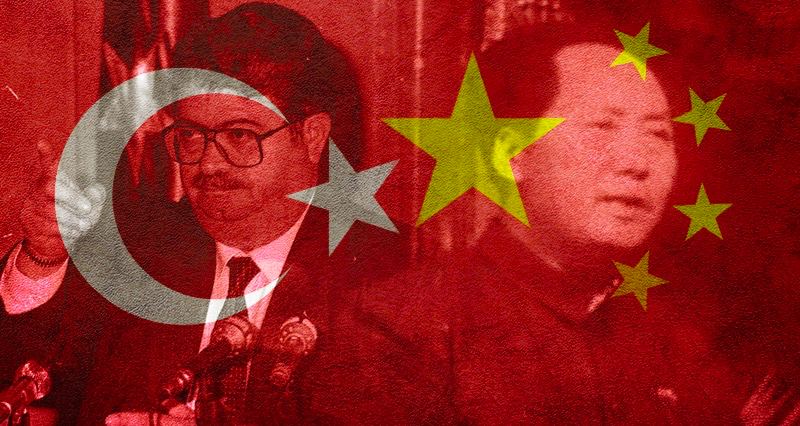
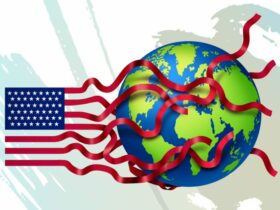
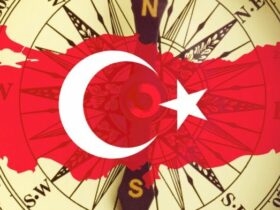

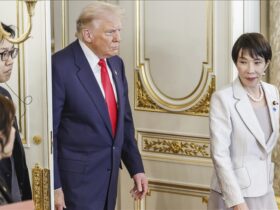
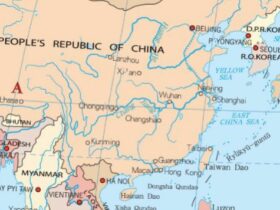
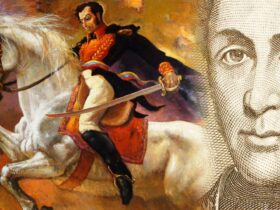

Leave a Reply